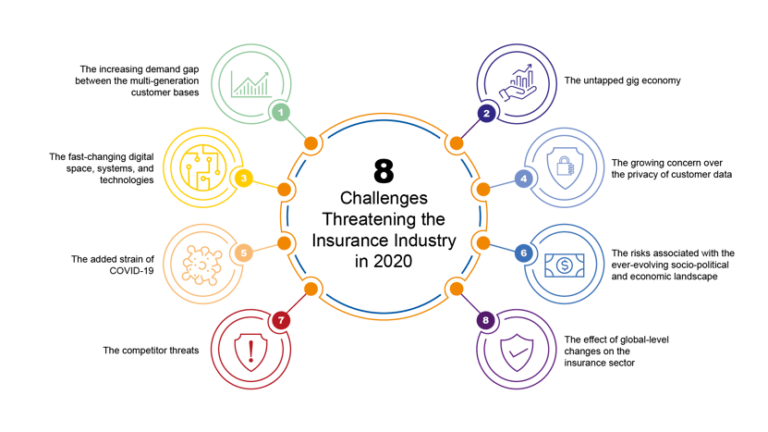Which Programming Language Is The Future Of AI?
In recent years, Artificial Intelligence (AI) has become a major focus for businesses and technology developers, and as a result, developers are looking for the best programming language to develop AI-based projects. While there is no one-size-fits-all answer to this question, there are some programming languages that have been proven to promote the growth of AI. Python is one of the most popular programming languages in the AI space, as it is designed to be user-friendly and has strong support from the open-source community. Additionally, languages like R and MATLAB are often used for developing AI applications. Ultimately, the best programming language for AI depends on the type of project being built.
Overview of Artificial Intelligence (AI)
Artificial Intelligence (AI) is the science of making computers think and act like humans. AI is a broad field that includes machine learning, natural language processing, robotics, computer vision, and more. AI is used in many industries to automate processes, such as in finance to detect fraud and in healthcare to diagnose diseases. AI can also be used to create virtual assistants and chatbots, as well as self-driving cars and autonomous robots. AI can help increase efficiency, reduce costs and even help save lives. AI has the potential to revolutionize the way we work, play, and live.
Popular Programming Languages Used for AI
Artificial Intelligence (AI) is the future of computing, and many of the world’s most popular programming languages are used to create AI systems. From Python and Java to C++ and Lisp, each of these languages offer unique features and benefits when it comes to developing AI applications. Python is one of the most widely used languages for AI development due to its simple and intuitive syntax and powerful libraries. Java is another popular language for AI, with its object-oriented design and high-level of abstraction making it an ideal choice for complex AI projects. C++ is another popular language for AI development, offering a fast, object-oriented approach to programming. Lisp is another AI programming language, with a unique syntax that makes it well-suited for writing complex AI algorithms. No matter which language you choose, AI development requires careful consideration and an understanding of the language’s capabilities.
Benefits of Using Specific Programming Languages for AI
As Artificial Intelligence (AI) applications become more prevalent in our daily lives, the need to use specific programming languages for AI development has become increasingly important. Programming languages such as Python, Java, R, and C++ offer a variety of advantages for AI development. Python is well suited for AI development due to its readability, its scalability, and its ability to easily manipulate data. Java is a great choice for AI development due to its platform independence and its ability to quickly build powerful algorithms. R is an excellent choice for AI development due to its ability to quickly prototype algorithms and its data analysis capabilities. C++ is a great choice for AI development due to its speed and performance, as well as its ability to easily integrate with other languages. Each of these programming languages has its own set of benefits, and choosing the right one for your AI project can make a world of difference.
Challenges of Developing AI with Programming Languages
The development of Artificial Intelligence (AI) presents unique challenges with programming languages. These challenges include the complexity of writing algorithms, the need for large datasets, and the difficulty of obtaining reliable results. Additionally, AI algorithms require powerful hardware in order to make the most of their capabilities. The coding language used must be able to handle the complex processes involved in AI development. It must also be able to cope with the large datasets and computationally intensive tasks. Further, in order to achieve reliable and accurate results, the coding language must be able to integrate with existing technologies and platforms. All these challenges combine to make AI development a difficult and complex process, and make the choice of programming language even more important.
Trends in Programming Languages for AI
The world of artificial intelligence (AI) is rapidly evolving, and programming languages are keeping pace. As AI technology becomes more sophisticated, the need for more powerful and adaptable programming languages increases. This article will explore some of the current trends in programming languages for AI, such as the rise of open-source AI development tools, increased demand for languages that can handle advanced algorithms, and the need for languages that are easy to learn and use. We will also discuss the importance of choosing the right language for an AI project. With the right language, AI developers can make the most of their projects and create powerful, efficient applications.
Predictions for the Future of AI Programming Languages
As Artificial Intelligence (AI) continues to evolve, so too does the programming language used to control it. With the increasing complexity of AI tasks, more sophisticated programming languages are being developed to better meet the needs of AI developers. Predictions for the future of AI programming languages range from more robust, AI-focused languages to improved versions of existing languages. As AI becomes increasingly integrated into everyday life, AI programming languages are expected to become more user-friendly, allowing for the development of more sophisticated AI systems. Additionally, more advanced AI tools and frameworks are expected to be developed, giving developers more power to create powerful AI applications. Ultimately, the future of AI programming languages should result in a more efficient and powerful development process, allowing for the rapid development of AI systems that can solve complex problems and provide useful insights.
FAQs About the Which Programming Language Is The Future Of AI?
1. What programming language should I use for AI development?
Answer: Python is the most commonly used language for AI development. It is easy to learn, has a large selection of libraries, and is well-supported by the AI community. Other languages such as R, Java, and C++ can also be used for AI development.
2. Is there a single language that ties all AI applications together?
Answer: No, there is no single programming language that ties all AI applications together. Each AI application has its own unique set of requirements, so the language used must be tailored to the specific task at hand.
3. Is there a language that is preferred for AI development?
Answer: Python is generally considered to be the most popular language for AI development due to its ease of use and robust selection of libraries. However, other languages such as Java, C++, and R are also used for AI development.
Conclusion
It is clear that the future of AI lies in the development of cutting-edge programming languages. While Python and R have been the mainstay of AI development in recent years, newer languages like Julia, Swift, and Rust are gaining traction and promise to further advance AI development. Ultimately, the language that is best suited for AI development is the one that can most effectively leverage the latest advancements in hardware and software. As AI technology continues to evolve, so too will the programming languages used to develop and power it.



